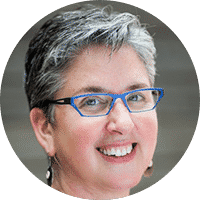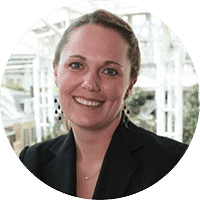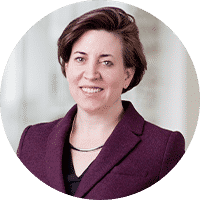Webinars
Technology, Communication & Employment for Youth with Disabilities
Three Part Webinar Series: Exploring the Intersection of Technology and Employment Systems Change for Youth with Disabilities
Explore how we can use newly developed, intuitive applications to support youth towards employment success and how we can best advocate for equal access to technology for all communities, including those that are traditionally underrepresented. Hear unique perspectives shared from nationally recognized experts on viewing technology solutions beyond “assistive technology” and offer practical strategies to address gaps in access, application and usage.
Part 1: Person-Centered to Person-Driven:
Successful Innovative Accommodations Increasing Self Advocacy and Self Determination
October 15th, 2020
Person driven accommodations, where individuals author and build reference tools, increase agency in communication, independent living skills, community access and work opportunity. Using portable printers to iPads – we build sequenced tasks lists, calendars, maps for community travel, self advocacy film, and job development tools that level the playing field for populations who have diverse organization and/or communication needs. With touch screen technology, now a tool of the masses, we have an opportunity for very strong and affective incidental learning. And yet people with disabilities fall behind in access to these tools. Nothing has highlighted this more clearly than the global pandemic forcing us to move into virtual work. Join us for review of concrete steps and functional tools that demonstrate successful progress!
Presenter:

Jennifer L. White
CEO, Able Opportunities, Inc.
Jennifer L. White has worked in the field of rehabilitation since her first paid job with the ARC of Bucks County, PA. After a career as a special education teacher, she opened Able Opportunities, Inc. She works with a broad range of people, specializing in vocational, education, and communication goals and programs for children and adults. Jennifer is known for innovative, business-minded strategies and for working in minority populations where issues of privilege and cultural respect are vital to long-term success. As a technical assistance consultant and a SME for the national Employment First project, she works with state teams, schools, employers, families, providers and agencies on Employer Engagement, Customized Employment, Innovative Technology Tools and Collaborative Design. Jennifer brings contagious enthusiasm, functional tools and exceptional services molded by decades of experience and a genuine belief in the value of diversity.
Part 2: Transformation through Disruption:
Technology solutions and their role in systems change and employment outcomes
October 22nd, 2020
Disruption describes the current climate, where innovative solutions provide pathways to new services, supports, and tools. Technology solutions play a critical role in modernizing opportunities and practice for people with disabilities as they navigate and engage with an ever-changing environment. In this presentation, Dr. Tanis will describe the disruptions influencing our programs and services and how innovative systems and technology solutions can be applied to provide students and job seekers opportunities to engage in emerging job markets.
Presenter:

Emily Shea Tanis, PhD
Director for Policy and Advocacy, Coleman Institute
Emily Shea Tanis, PhD, is the Director for Policy and Advocacy at the Coleman Institute for Cognitive Disabilities at the University of Colorado. Dr. Tanis has been a member of the Coleman Institute team since 2010 as a Coleman fellow and quickly advancing into the roles of the Associate Director and Acting Executive Director and now Co-Director for the Institute under the new organizational structure. Dr. Tanis is also on the faculty of the Department of Psychiatry at the University of Colorado Anschutz Medical Campus, where she has published articles and investigated the definition of intellectual disability, the measurement of adaptive behavior and support need, the construct of self-determination, federally funded supports and services for people with IDD and their families, and self-directed employment strategies. She is nationally recognized for her expertise in applied cognitive technology supports and advancing the rights of people with IDD to technology and information access.
Part 3: Communication is Job One: Effective Communication and Employment
November 12th, 2020
Bob Williams and Tauna Szymanski from CommunicationFIRST will explore why and how people who need augmentative and alternative communication (AAC) can have real jobs and career opportunities. How can those who use AAC be better supported to work and communicate throughout their lifespan? What are the rights to communication access and what are employers’ responsibilities? It’s never too early or too late to introduce improved communication tools and supports!
Presenters:

Bob Williams
Policy Director, CommunicationFIRST
Bob Williams joined CommunicationFIRST in June 2019, after retiring from a distinguished four-decade career in federal and state government and the nonprofit sector, most recently as Director of the US Independent Living Administration at the US Department of Health and Human Services (HHS). He is a nationally recognized leader on policy issues relating to supporting people with the most significant disabilities to live, work, and thrive in their own homes and communities. For over 60 years, Mr. Williams has relied on an array of AAC strategies, including a series of speech generating devices over the past three decades. He lives with his wife, Helen Rader, in Southwest Washington, DC, where they enjoy visits with the grandkids, walking along the riverfront, Netflix binges, and all things Springsteen. For full bio, please visit https://communicationfirst.org/aboutus/.

Tauna Szymanski, JD, MPA
Executive Director & Legal Director, CommunicationFIRST
After a 20-year career in environmental policy and law, Tauna Szymanski, JD, MPA, joined CommunicationFIRST in April 2019. For more than a decade at a multinational law firm in London and Washington, DC, Ms. Szymanski represented clients in high-profile cases before federal and state appellate courts, in federal regulatory proceedings, and in environmental commodity transactions. While in private practice, her pro bono and volunteer work focused on disability rights and inclusive education. She represented the National Disability Rights Network as amicus curiae in the US Supreme Court case of Fry v. Napoleon Community Schools, 137 S. Ct. 743 (2017), which unanimously upheld the rights of students with disabilities to seek justice under the Americans with Disabilities Act and other civil rights laws. Ms. Szymanski has been recognized as a leading lawyer by Chambers Global, Chambers USA, Who’s Who Legal: Environment, and Law360. She received her JD from Stanford Law School, MPA and MA in Urban Planning from Princeton University’s Woodrow Wilson Center for Public and International Affairs, and BA from Carleton College. She is licensed to practice law in New York and Washington, DC. Ms. Szymanski grew up in Asia, has multiple disabilities, and expresses herself most effectively by typing, though is able to communicate using speech.

